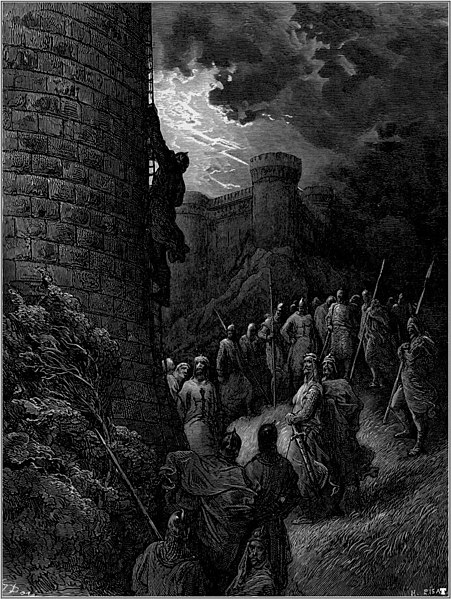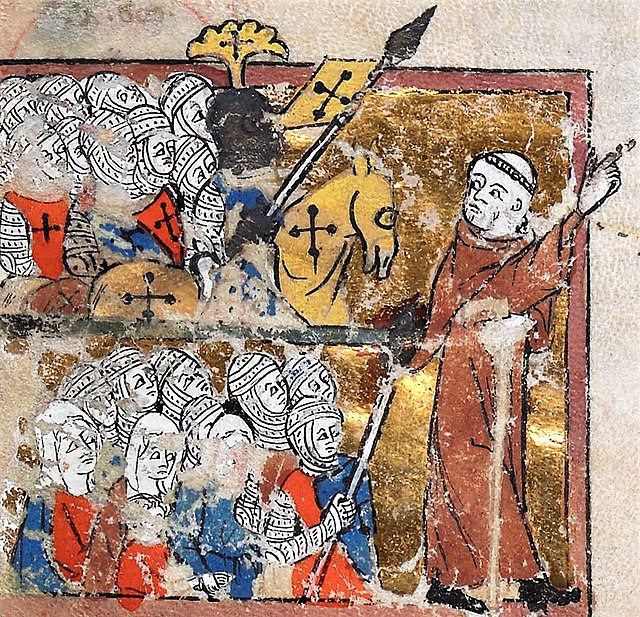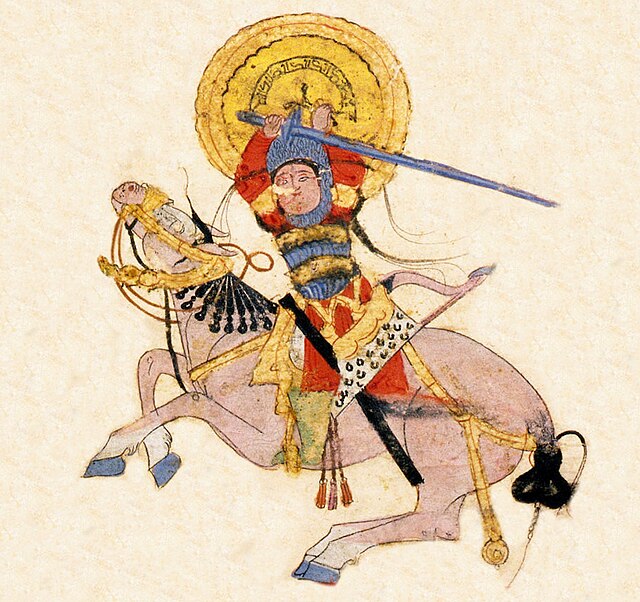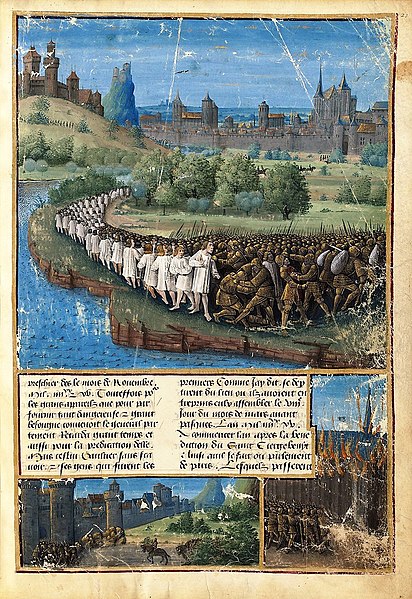Bohemond I of Antioch, also known as Bohemond of Taranto or Bohemond of Hauteville, was the prince of Taranto from 1089 to 1111 and the prince of Antioch from 1098 to 1111. He was a leader of the First Crusade, leading a contingent of Normans on the quest eastward. Knowledgeable about the Byzantine Empire through earlier campaigns with his father, he was the most experienced military leader of the crusade.
Bohemond I of Antioch
Bohemond and his Norman troops scale the walls of Antioch, in an engraving by Gustave Doré
Capture of Antioch by Bohemond in June 1098, in a painting by Louis Gallait, 1840
Mausoleum of Bohemond in Canosa di Puglia
The First Crusade (1096–1099) was the first of a series of religious wars, or Crusades, initiated, supported and at times directed by the Latin Church in the middle ages. The objective was the recovery of the Holy Land from Islamic rule. While Jerusalem had been under Muslim rule for hundreds of years, by the 11th century the Seljuk takeover of the region threatened local Christian populations, pilgrimages from the West, and the Byzantine Empire itself. The earliest initiative for the First Crusade began in 1095 when Byzantine emperor Alexios I Komnenos requested military support from the Council of Piacenza in the empire's conflict with the Seljuk-led Turks. This was followed later in the year by the Council of Clermont, during which Pope Urban II supported the Byzantine request for military assistance and also urged faithful Christians to undertake an armed pilgrimage to Jerusalem.
Miniature of Peter the Hermit leading the People's Crusade (Egerton 1500, Avignon, 14th-century)
Anatolian Seljuk horseman, in Varka and Golshah, mid-13th century miniature (detail), Konya, Sultanate of Rum.
Pope Urban II at the Council of Clermont. Illustration from a copy of Sébastien Mamerot's Livre des Passages d'Outremer (Jean Colombe, c. 1472–75, BNF Fr. 5594)
An illustration showing the defeat of the People's Crusade, from Sébastien Mamerot's Livre des Passages d'Outre-mer (Jean Colombe, c. 1472–75, BNF Fr. 5594)








